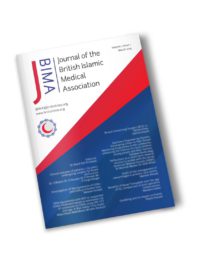
Background
Bowel cancer is the fourth most common cancer in the UK and the second most common cause of death from cancer (1). Screening can identify cancers earlier and reduce the incidence of bowel cancer by endoscopic removal of pre-malignant lesions at colonoscopy Regular bowel cancer screening has been shown to reduce the risk of dying from bowel cancer by over 16% (2). Despite this, there is evidence that participation in all three of the cancer screening programmes is lower in more ethnically diverse communities, people from more deprived groups, people in vulnerable groups, and people with severe mental illness (3). GL1 is an area of Gloucestershire which represents a high proportion of these groups relative to surrounding areas.
Methodology
1934 eligible patients in the GL1 area were identified as registered to a single GP practice and not having completed bowel cancer screening in the last two years. 30 of these patients aged between 61-65 were consented for a structured interview with a GP using five questions. These covered three key areas: awareness, reasoning for declining and willingness to participate following GP endorsement.
Results
Approximately 47.5% of the total number of patients who have not engaged with the bowel cancer screening programme in the GL1 area were registered as British or Mixed British ethnicity. The remaining cohort was made up of ethnic minority groups including Indian or Mixed Indian, Pakistani or Mixed Pakistani and African. 72.4% of interviewees were aware of the screening programme. The most common reasons for not partaking in the screening were “invite lost or not received” (46.7%), “unsure why needed” (36.7%) and “unwilling to provide stool sample” (30%). 63.4% of the interviewees would be “more likely” to participate following GP endorsement.
Conclusions
While awareness in this population group remains good, there are issues of this translating to placing importance on bowel cancer screening. Patient education is key to tackling this. GP endorsement has a clear role to play and this may include opportunistic discussions in vulnerable patient groups within consultations. More research is needed to see if health education in community or faith based settings may also improve informed awareness in these groups.
References
- Cancer Research UK (2019a) Bowel Cancer Statistics. Cancer Research UK
- Cancer Research UK(2019a) Engaging primary care in bowel screening. GP good practice guide for
Scotland. Cancer Research UK. http://www.cancerresearchuk.org - Young B, Robb KA. Understanding patient factors to increase uptake of cancer screening: a review. Future Oncol. 2021 Aug 11. doi: 10.2217/fon-2020-1078. Epub ahead of print.

